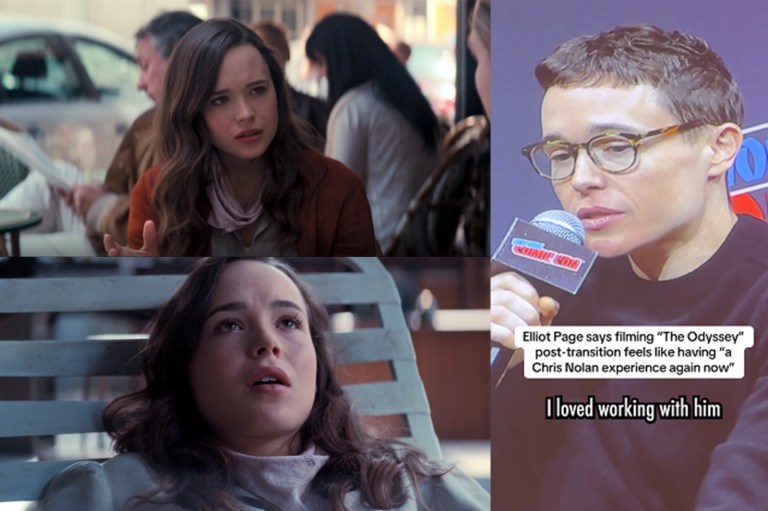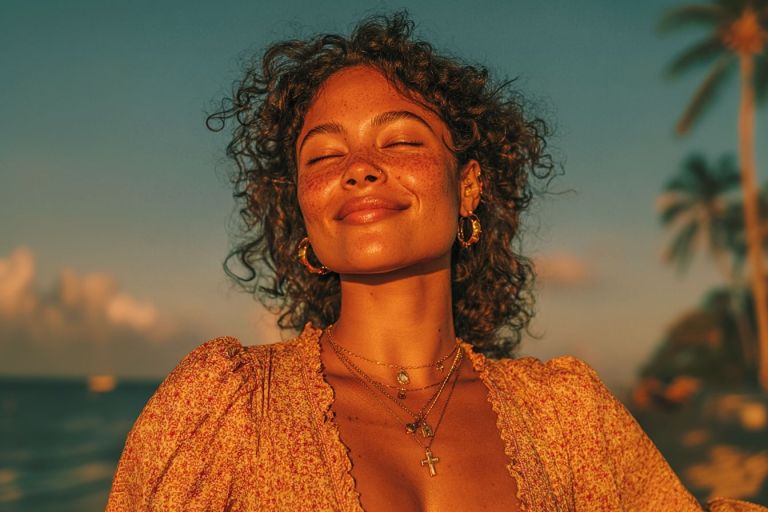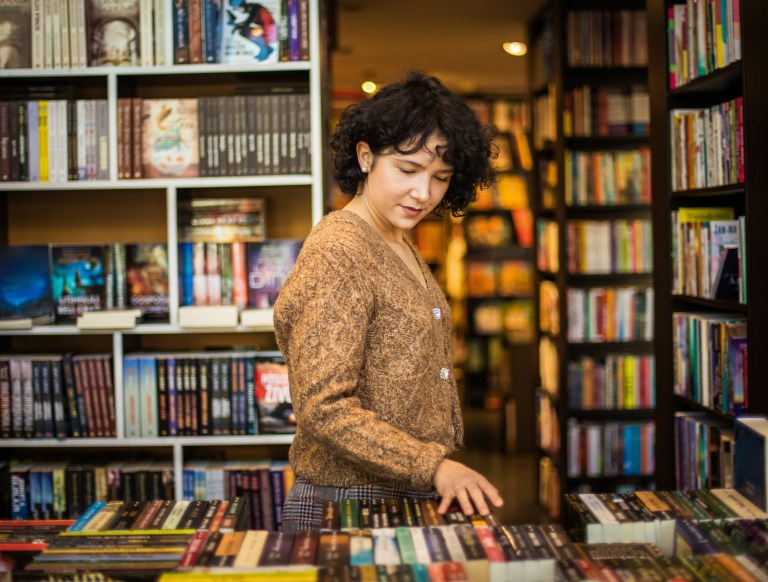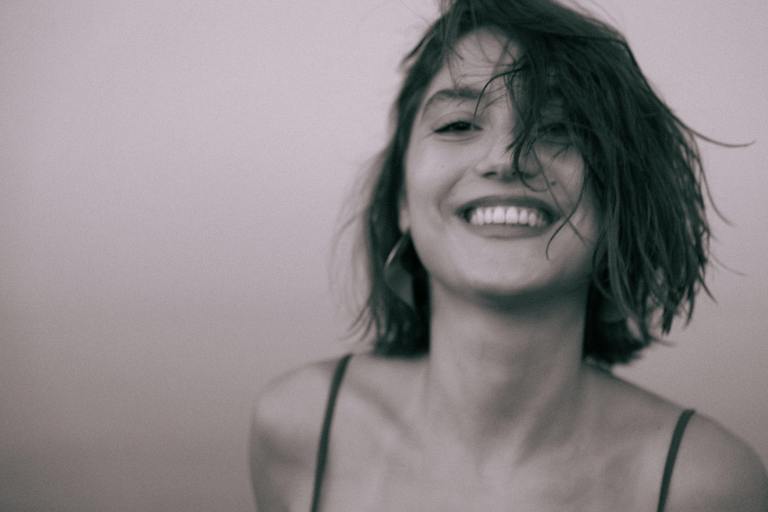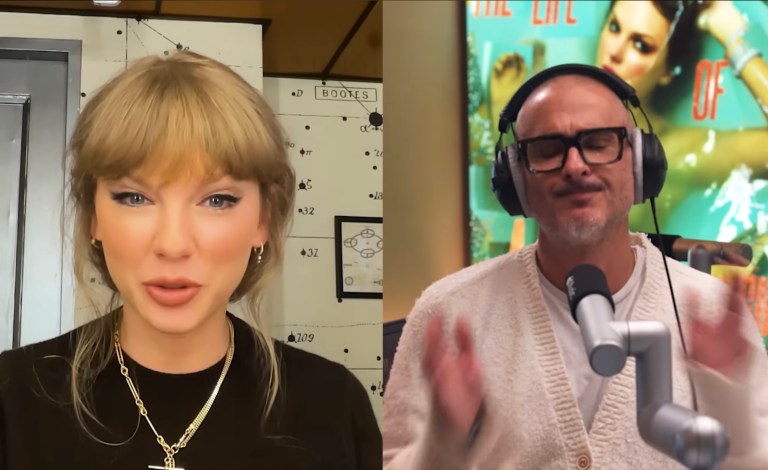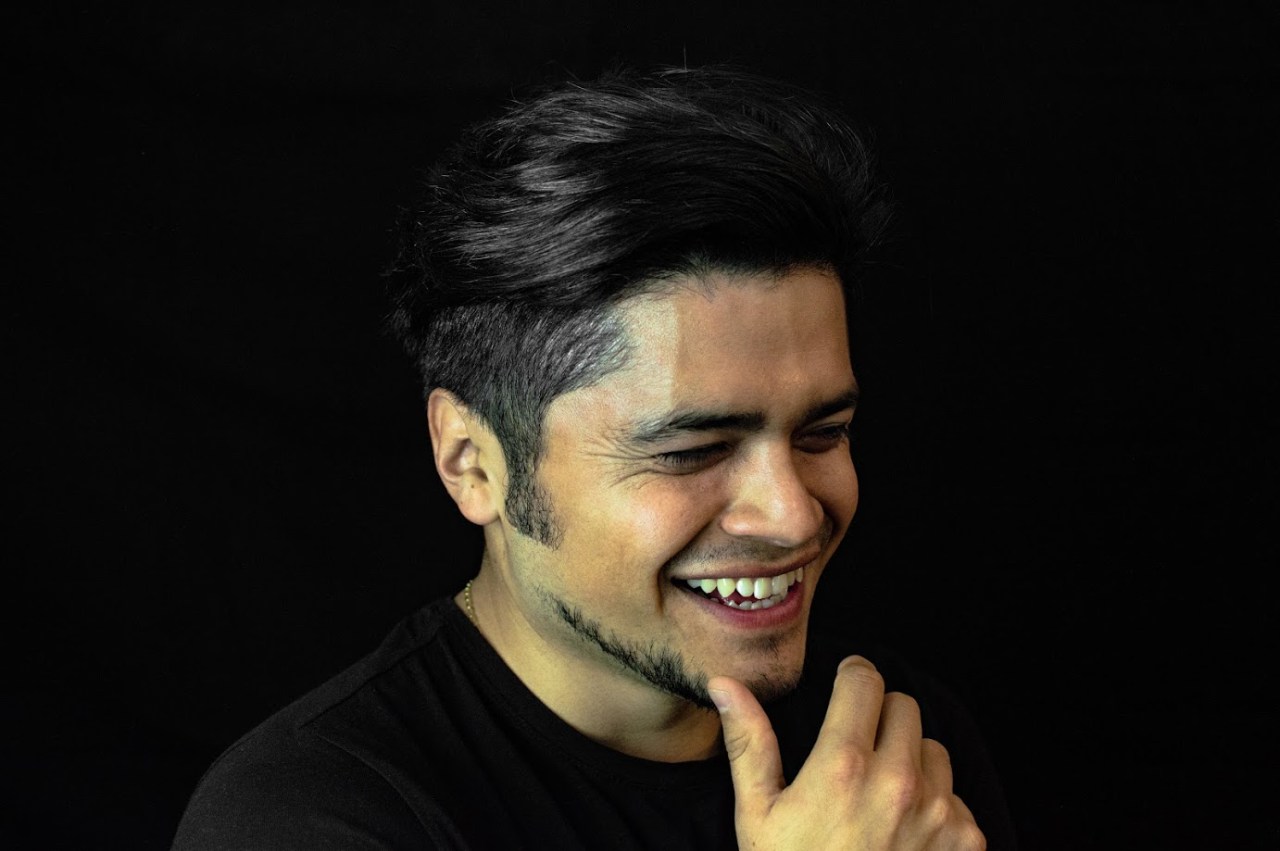
This Social Media Page Actually Saves Lives: An Interview With Jovanny Ferreyra Of The Artidote
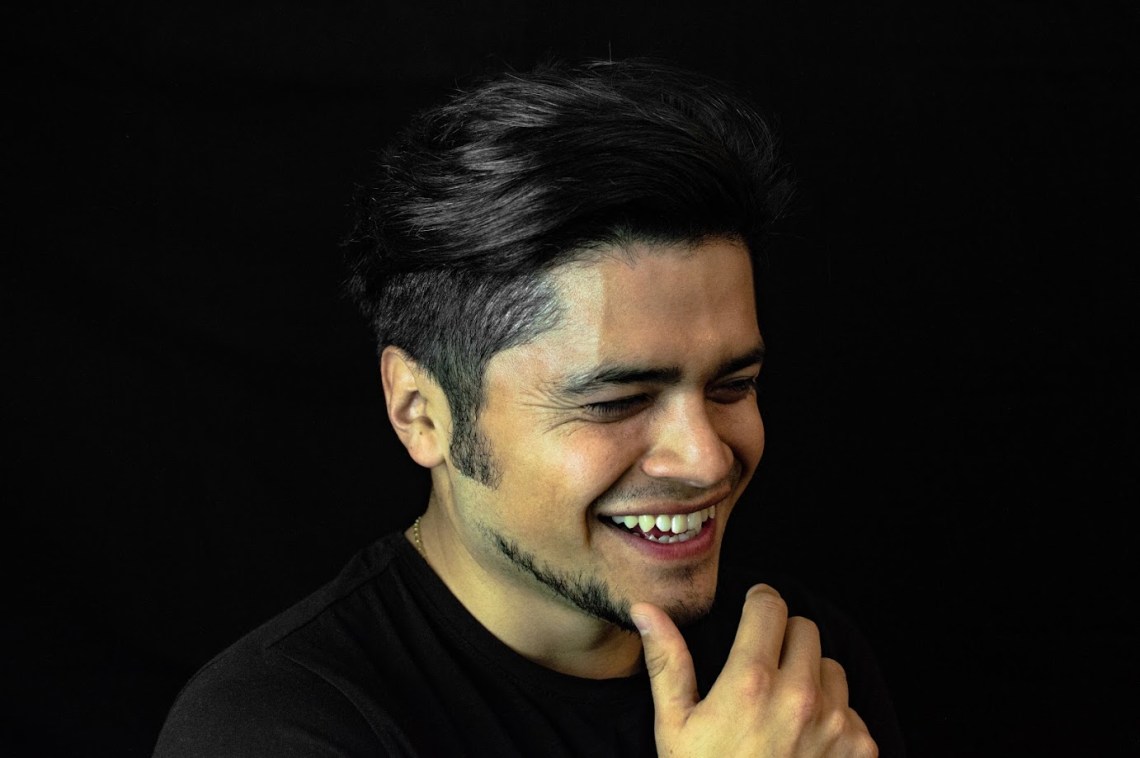
If lives are measured in moments, then art is what keeps us alive. And in a world where hope is something that generations fail to capture, very rarely do we bump into people who change the way we perceive everything around us, through a clarity of thought that doesn’t just exude brilliance, but also contaminates others with it.
I managed to catch up with Jovanny Varela-Ferreyra, owner of The Artidote, a man who has swept us off our feet, time and again and has made us believe in happiness even when the nights refused to die and hope barely flickered.
Ferreyra, who rose to prominence in 2013 as the figure behind Berlin Art Parasites, a Facebook page mostly known for its massive display of art and feelings, is an artist and social media personality based in Munich, Germany. Soon after leaving the project that won his Internet fame, Ferreyra created The Artidote, a space where to story-tell, empathize, bond and heal through art across Facebook, Instagram and Snapchat.
These are his musings about art, life, love and everything that connects us as human beings.
Okay let’s start with your childhood. How did you grow up and into loving art, as you portray through your curatorship?
When I was 10, having recently arrived in the U.S. from Mexico, I had no other way of connecting with my classmates but with drawings. Art then became a powerful tool of communication; it became my second language when English was still foreign to me.
Why do we need art in the world as we see it today?
At the collective level, art is a particular language. It has the power to go beyond cultural/language barriers to get a thought or feeling across. In that regard it can be a conduit for empathy—which the world is always more in need of. At the individual level, creative expression is a therapeutic process that allows us to transfer our internal world onto the external one to make better sense of it. So it cultivates self-awareness—something the individual is always more in need of.
We’ve seen you talk about ‘healing through art’. To what extent do you think that we can really heal through art?
If art is a language & our works of art are our stories, we heal by creating bonds through those stories. Through shared experiences we find empowerment—this is how tribes and communities develop. For those hurt & estranged among us, a shared experience offers the realization that we are not alone in our struggles; that we are all in this together, attempting to find peace, love, purpose and a sense of belonging even if only for the brief moment in time when we were are all here.
Do you think pain is important when we are connecting with art? Do you think it breaks certain chains and frees us in some ways?
That question has tricky wording. So my answer is tricky too: yes and no.
I think that understanding pain (an almost inevitability of life) is important in order to connect with someone else’s painful experience. It helps us form the bridge necessary to empathize (not only sympathize) with someone else’s situation. I don’t just think pain is important when we are connecting with art but when we are connecting.
The reason why it’s a tricky question/answer is because, sure, you can say that painful experiences may create a depth of character that in a way frees us, as you’ve put it, into appreciating the beautiful moments that life is also full of. But, by the same token, pain can also chain us, as you’ve put it, into being afraid of life—how many people do we not know that are afraid of love (one of the most beautiful & necessary aspects of life) and have begun to reject it because it has hurt them in the past.
Pain, then, is a double-edged sword that could both free you or chain you. And I think it depends on the value that you’re able to extract from every painful experience.
That’s why self-awareness is so important.
Why do you love curating the most and how has it molded you?
It’s not that I love curating the most, necessarily— I love art in general. But it’s just that I’ve found a way to have a bigger impact through curating art on social media. To be vulnerably honest, when I was 15 I had the naïve & idealistic idea of wanting to change the world with my art. But by the time I finished my BFA (painting) degree at The University of Illlinois in Urbana-Champaign, I became very disillusioned with what I discovered the art industry to be. I even lost my will to change anything through art.
A few years later, hooked on a feeling, I began to experiment with collage (the art of putting separate pieces of content together to form a new whole). Fusing a text written by Ernest Hemingway, for example, with GIF art by an illustrator from Bangkok. It is out of this experiment of making written content dance harmoniously with pieces of visual content that my curation evolved from. The Artidote project stems from me wanting to give that practice a bigger audience through social media & a positive impact on the mental health of those who happened upon it. Plot twist: The Artidote is an ever-evolving work of art.
Do you think poetry is regaining importance with the surge of social media? How important is it, especially in this day and age?
Poetry is one of those words like “God.” You say God in a crowded room & it brings up different images in each person’s mind. You say “poetry” and I not only see sentences written in stanzas that have been sprinkled with metaphors & sometimes-esoteric vibes.
You say poetry and I see life:
I see my mother in Mexico tending to her garden full of plants & flowers because she’s always had an overflow of love to give – her best watered, sun-kissed blossoms being her 6 children. The way she lived & loved taught me how to imbue the act of living with poetry.
I also see for example, a girl in Delhi who is single yet just found out she’s pregnant. At 20, she sees no other option but to overdose before bringing shame to her family. I see her sharing those seemingly final thoughts with thousands of strangers on the Internet. Then I see those strangers from different countries and cultures responding to her message with the love and support necessary to give her the strength to go beyond her fears and find other solutions to her situation.
(This story just happened on The Artidote’s Snapchat channel).
That is poetic to me. So I’d say yes, poetry is alive, well and important in the age of social media.
Do you think artists are like doctors in the sense that art can help with mental issues like depression, anxiety etc?
Absolutely not. We have to be very careful with some similes & metaphors. A mental illness is not going to be cured by a work of art. It’s as odd as claiming that a painting can cure cancer. Let’s not for a second disregard the real and potentially mortal consequences of living with a mental illness. The same as you need a doctor to look over a cyst, you also sometimes need a professional to look over your mental health.
We’d not only be doing a disservice to everyone suffering but we’d also be feeding the stigma surrounding mental health for those who don’t consider it a real disease.
Now, I am well aware of the limits of The Artidote and I have come to accept the fact that I cannot put the entire weight of the world on my shoulders. I also have to accept the fact that there will be people who I will come across whom I won’t be able to help—that there are people who need help beyond what The Artidote, in its current form, can offer. Don’t get me wrong, I am all for pushing the boundaries to find the greatest possible impact using the tools of art and social media… but I’m also not naïve about its limits on mental illnesses.
How has the Snapchat project helped you grow?
As much as I’m the curator of the channel, I am also a spectator. It’s been an enriching experience to get to digest various realities & frames of mind that more often than not are a result of the social norms of a region. What makes it even better is the photos that come attached to the messages, which are taken from the point of view (literally) of the snapper. The exposure I receive to these thoughts that I may never have thought before, the places I may have never been or ever will and the experiences that, for better or worse, I may or may not get to live is what I find so enriching and expansive..
There was once a girl called Emma, who had written into you one day after attempting suicide. Tell us how that affected your life at large?
The effect was piercing and direct: it gave me the realization that I sometimes have the power to make some things better for someone else. That we all do. That’s a very empowering realization.
How do you think art and love are interlinked?
I can answer that one with an Artidote post: “Art and love are the same thing: It’s the process of seeing yourself in things that are not you.” —Chuck Klosterman
Do you feel a certain responsibility for all the ragged souls that find belonging at The Artidote?
I feel a particular sense of responsibility towards the actively engaged members of the community; those that come on board and stay a while to form a crucial part. Whether it is commenting, sharing a post or supporting other people’s struggles on Snapchat, they are making my humble effort have a ripple effect much more bigger than myself—and for them I feel the responsibility to continue to cultivate the safe & supportive space this whole project has brought forth.
Can you tell us about 3 of your favourite posts on The Artidote, ones that impacted your own way of thinking?
I could share 1,000. But for the sake of brevity:
1. The Artidote’s first truly viral post. As a heterosexual male, the post & conversations that followed expanded my perspective on relationships, rejection & my role in not becoming a toxic presence for the women in my life.
2. This one for always giving me a laugh. Sometimes laughter is a good antidote to a past, painful experience.
3. This one always brings me a sense of peace. Plus it reminds me of The Artidote’s core philosophy: “Mental Health over every damn thing.”
What exactly does the Artidote mean to you in terms of its impact in your life?
Everything.
Having the possibility of making a living by fusing all of my passions into a project that brings about real positive change in the world is the life I’ve always dreamed of.
Finally, has art showed you the way forward?
It’s shown me the way inward. So that I may expand outward. ![]()
